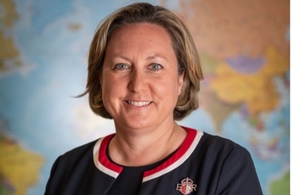Consultation to extend NHS pension scheme
- The extension would make it easier for skilled professionals returning to the NHS to deliver high-quality care to patients
- Move would help to bolster the workforce ahead of winter so the they can continue to bust the Covid backlogs
Retired and partially retired NHS staff could have important NHS pension changes extended to make it easier for them to return to the workforce or to continue supporting the health system over winter, as the government launches a new consultation today.
Ahead of what could be a challenging winter where we expect more people to come forward for checks, these measures will help support and boost the workforce. In this way, we are putting in place preparations that will put the health system in the strongest possible position to tackle the pressures and bust the Covid backlogs.
Since March 2020, certain retire and return rules in the pension scheme have been suspended to allow retired staff to return to work or increase their working commitments without having the payment of their pension benefits suspended.
The measures are currently set to run until 31 October 2022 and the consultation will gather views from the public and stakeholders on whether to extend the measures to 31 March 2023.
This would allow skilled and experienced staff and have stepped up to support the system to continue working for the NHS throughout the potentially challenging upcoming winter period, easing pressures on the system and helping to tackle the Covid backlogs.
Health and Social Care Secretary Steve Barclay said:
The country is hugely thankful to all the retired staff who returned to support the NHS and the public during the pandemic.
This winter will be challenging too and we are putting in place the necessary preparations to support the NHS while it continues to deliver first-rate care to patients.
As part of this we are now consulting on extending temporary changes to the NHS pension scheme, which have so far allowed highly-skilled retired staff to return to the workforce without having their pension benefits affected.
The NHS pension scheme is one of the best available, providing generous retirement benefits for hardworking staff after a lifetime of service looking after the nation’s health.
The government is committed to growing and supporting the NHS workforce, with over 4,100 more doctors and 9,600 more nurses compared to last year, and remains on track to deliver on the manifesto commitment to have 50,000 more nurses by 2024, with 29,000 more nurses already. The government has also commissioned NHS England to develop a long term workforce plan to recruit and support staff while they deliver high-quality, safe care to patients.
To prepare for winter, the government is working closely with the NHS at pace to prepare for the pressures ahead, including by increasing capacity, boosting NHS 111 and 999 support with at least 4,800 staff working in 111 and 2,500 in 999 call rooms to meet high demand, tackling delayed discharge and using new innovations such as virtual wards by creating the equivalent of at least 7,000 more beds.
The Secretary of State for Health and Social Care and NHS England recently set out plans to address winter pressures. He has also launched a taskforce to drive up the recruitment of international staff into critical roles across the system, alongside recruiting and retaining more doctors and nurses, so staff can continue their work of busting the Covid backlogs, having now virtually eliminated waits of over two years as part of the Elective Recovery Plan – backed by record investment.
Background
- These measures were originally provided by Section 45 of the Coronavirus Act from March 2020 to March 2022, then until 31 October 2022, they have been continued via temporary amendments to NHS Pension Scheme regulations. The consultation will run until 12 September 2022.
